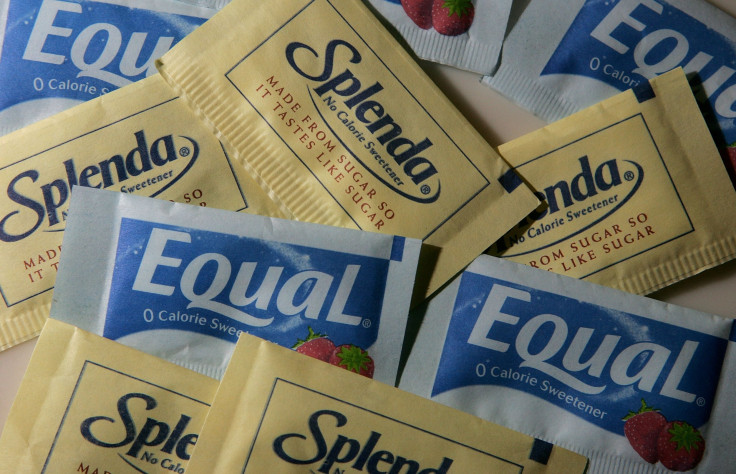Artificial Sweeteners Side Effects: Sugar Substitutes Linked To Weight Gain, Review Of Studies Say

Do you think consuming no-calorie sweeteners could help you lose weight? A lot of people choose artificial sweeteners over consumption of sugar in their diet to counter obesity, diabetes and high blood pressure. What if the sugar substitutes are actually associated with weight gain in the long run? A new review of several studies published Monday in the Canadian Medical Association Journal claims so.
The recent review analyzed several randomized controlled trials and prospective cohort studies to come up with a conclusion that artificial sweeteners are linked to heart health, weight, stroke incidence and blood pressure levels of more than 406,000 people who said they used it as a substitute to sugar and its effects were not on the positive side.
The researchers reviewed 37 studies, which had followed and analyzed groups of people consuming artificial sweeteners such as aspartame, sucralose and steviocide and others over longer time spans with follow ups every four to nine years. Researchers discovered people who regularly consumed sweeteners gained weight with time and had an increased risk of obesity, stroke and high blood pressure.
The review on studies concluded: "Evidence does not clearly support the intended benefits of non-nutritive sweeteners for weight management, and observational data suggest that routine intake of non-nutritive sweeteners may be associated with increased BMI and cardiometabolic risk."
Lead author of the review and a research scientist at the University of Manitoba, Canada, Meghan Azad said: "We found that consumption of non-nutritive sweeteners was associated with modest long-term weight gain in observational studies. Our results also extend previous meta-analyses that showed higher risks of Type 2 diabetes and hypertension with regular consumption."
"There is no clear benefit for weight loss, and there's a potential association with increased weight gain, diabetes and other negative cardiovascular outcomes," Azad added, according to NPR.
The Food and Drug Administration (FDA) in the United States approves five artificial sweeteners for consumption, according to Webmd, which include:
- Acesulfame potassium — brands include Sunett
- Saccharin — Sweet 'N Low
- Aspartame — NutraSweet or Equal
- Sucralose — Splenda
- D-Tagatose — Sugaree
Read: Sugar And Your Health: How The Sugar Industry Influenced Scientific Research
Sweeteners have several other health implications apart from weight gain. Not all of them are manufactured in the same manner with the similar constituents and thus might not always be appropriate substitutes for sugar.
Behavioral neuroscientist Susan E. Swithers, who is a professor of psychological sciences at Purdue University, told LiveStrong.com that daily consumption of sugar substitutes, specifically in beverages might lead to a disruption of normal metabolism and overeating.
Aspartame, present in brands like Equal and NutraSweet is considered volatile under heat and should be used during cooking or baking. However, aspartame, ace-K, neotame and sucralose are sweeteners which are considered safe for consumption by pregnant women when used in moderation. Pregnant and lactating women cannot use saccharin and stevia yet.
Aspartame would be associated with medical problems and bear consequences for people with a rare gentic condition known as phenylkenoturia (PKU), a disorder which causes disruption of amino acid metabolism. Those suffering from PKU are required to keep phenylalanine levels in their blood under control and low in order to prevent mental retardation as well as neurological, behavioral, and dermatological problems.
© Copyright IBTimes 2025. All rights reserved.






















